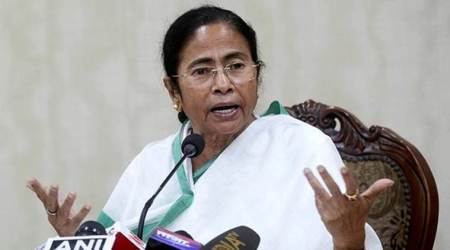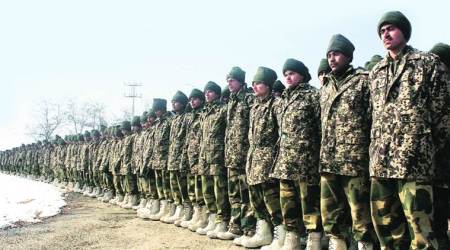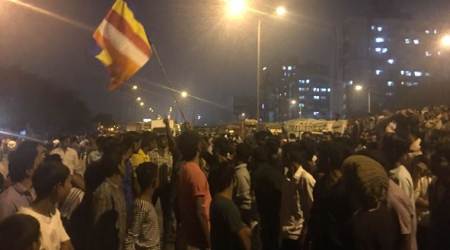 While Dalits mark the event as a symbol of the valour and strength displayed by their ancestors against caste oppression, upper caste and/or Hindutva groups question the celebration of a “British victory”.
While Dalits mark the event as a symbol of the valour and strength displayed by their ancestors against caste oppression, upper caste and/or Hindutva groups question the celebration of a “British victory”.
The caste violence that has rocked Maharashtra in the last three days has spawned at least two narratives. In one, there is an attempt to project the unrest as a Dalit versus Maratha face-off, and in the other, the confrontation is primarily between Dalits and groups affiliated to the BJP-RSS. There is truth in both stories that are being told. Particularly in the last year or so, Maharashtra has seen aggressive mobilisations by the state’s dominant community of the Marathas, which feels left behind in an economic downturn, and left out of the education and jobs quota regime that, with all its limitations, offers a leg up to the Dalits and OBCs. In a sense, therefore, the explosion of Dalit anger is a counter mobilisation — by Dalits, in response to the Maratha show of strength. It is also true, at the same time, that the current turbulence that spilled and spread from Pune to other parts of the state, nearly shutting down Mumbai on Wednesday, is part of a larger pattern of protests by Dalits in the three and a half years of the NDA regime. Dalit anger has expressed itself against cow vigilantism, Hindu majoritarianism and attempts to flatten cultural diversity, in locales ranging from Hyderabad Central University to Una to Koregaon-Bhima now. In Koregaon-Bhima, Dalit commemoration of a battle fought 200 years ago — in which Mahar soldiers who fought on the side of the East India Company defeated the Peshwa’s men — has become the provocation. While Dalits mark the event as a symbol of the valour and strength displayed by their ancestors against caste oppression, upper caste and/or Hindutva groups question the celebration of a “British victory”.
Amid the several readings and cross-cutting faultlines, the reality of the assertion by India’s most disprivileged is loud and clear. There are obvious dangers in the anger of a restive group let down by its leaders playing out as violence, and the last three days in Maharashtra have shown evidence of that. The onus is on the state government to uphold the rule of law in fair and impartial ways. But, at the same time, the unrest in the state must bring a moment of pause for leaders of all parties across the political spectrum. The challenge, for all of them, is to engage with the aspirations and resentments of groups that are renewing an older demand for equality and dignity and fair opportunity.
When it came to power in 2014, the BJP promised “sabka saath sabka vikas”. Since then, it has invited questions about its commitment to the promise vis a vis Muslims. It has sought to label any attempt to raise the issue of minority insecurities or their special concerns as “appeasement”. In the case of the controversy that started at Koregaon-Bhima, the party has raised the spectre of “divisiveness” and “casteism”. If the BJP does not look the challenge framed in Maharashtra in the eye, there will be a price to pay in the long term.
For all the latest Opinion News, download Indian Express App






























